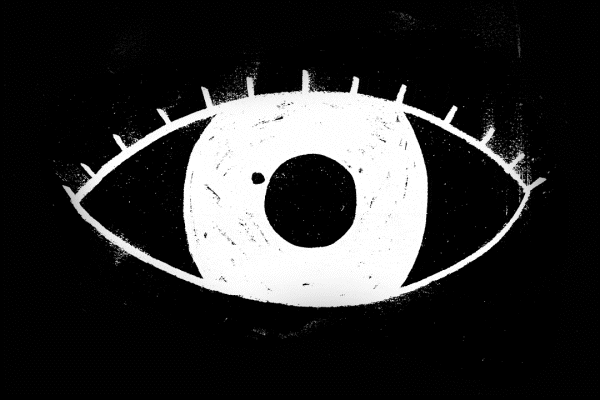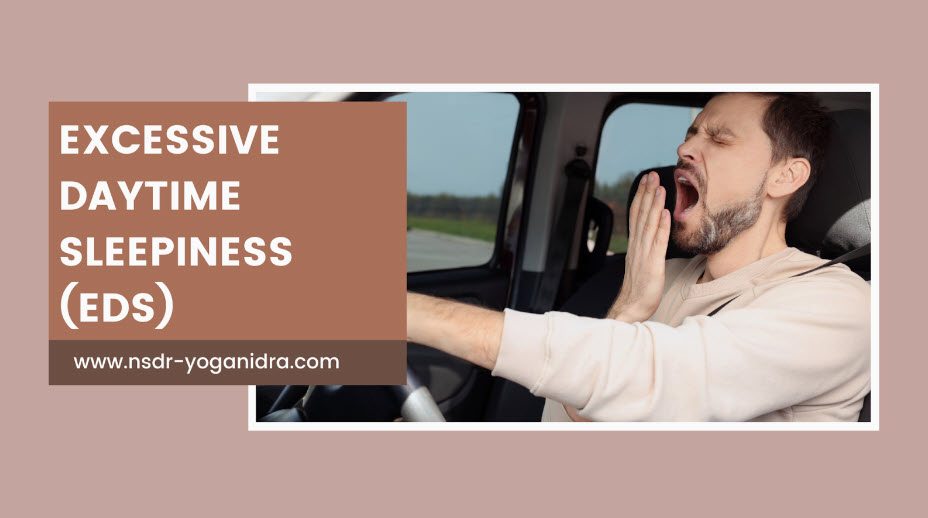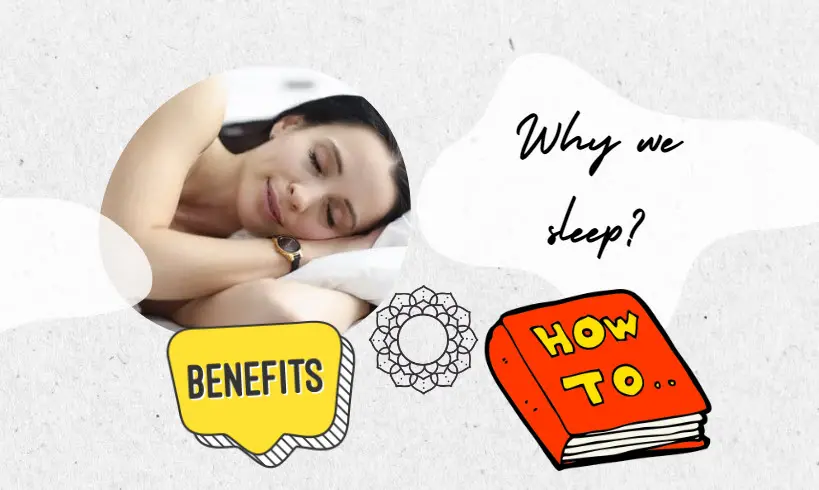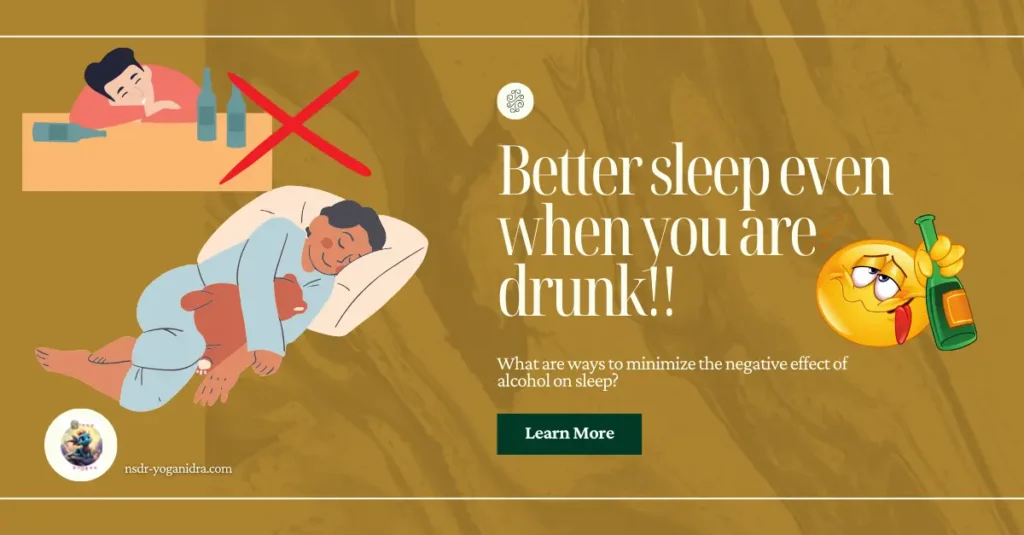Falling Asleep Randomly Not Narcolepsy: 5 Tips for Managing Excessive Daytime Sleepiness
Explore the causes of excessive daytime sleepiness and discover effective strategies to manage this condition. Learn how to differentiate between narcolepsy and other underlying health issues causing EDS.

Introduction
Do you find yourself feeling inexplicably drowsy throughout the day, even after a full night’s sleep? If so, you may be experiencing excessive daytime sleepiness—a condition that can significantly impact your daily life. According to a National Sleep Foundation poll conducted in 2020, approximately 20% of Americans reported feeling sleepy during the day at least a few times per week. It’s essential to note that these figures can fluctuate, and the perception of daytime sleepiness may be influenced by various factors, including sleep quality, work schedules, and stress levels.

While falling asleep randomly is often associated with narcolepsy, there are other potential causes for this issue. In this article, we will explore five tips for managing excessive daytime sleepiness, providing valuable information and practical solutions for those who struggle with feeling excessively sleepy. Whether you are simply curious about sleep-related issues, researching ways to combat drowsiness, or personally dealing with sleep problems, this article aims to educate, inform, and empower you to better manage your excessive daytime sleepiness.
Understanding Excessive Daytime Sleepiness
Excessive daytime sleepiness (EDS) is a common condition characterized by persistent sleepiness and a general lack of energy, even after adequate night-time sleep. EDS is not a disorder in itself, but rather a symptom of many different underlying health issues.
Medications and Medical Conditions
Certain medications and medical conditions, including depression, hypothyroidism, and diabetes, can cause excessive daytime sleepiness as well.
Causes of Excessive Daytime Sleepiness
Excessive daytime sleepiness (EDS) can have various underlying causes, and it is essential to identify the specific factors contributing to this condition. Some common causes of EDS include:
Lack of Quality Sleep
Sleep Disorders
The primary and prevalent cause of excessive daytime sleepiness is often rooted in inadequate or poor-quality sleep. Lifestyle factors play a pivotal role, encompassing a spectrum from an imbalanced diet and lack of physical activity to irregular sleep schedules. When individuals compromise on the essential foundations of sleep hygiene, the body’s ability to achieve restorative rest diminishes. A suboptimal sleep environment, characterized by inconsistent routines or unhealthy habits, disrupts the natural sleep-wake cycle, leading to daytime fatigue and drowsiness. Addressing these lifestyle factors through improved sleep habits, nutrition, and physical activity is crucial for fostering a healthier and more rejuvenating sleep pattern.
Sleep Disorders:
- Sleep Apnea: Interruptions in breathing during sleep can lead to fragmented sleep and daytime sleepiness.
- Insomnia: Difficulty falling asleep or staying asleep can result in insufficient sleep and daytime fatigue.
- Narcolepsy: A neurological disorder characterized by sudden and uncontrollable episodes of sleep.
Medical Conditions leading to sleep issues
- Depression: Mental health disorders, including depression, can cause fatigue and excessive sleepiness.
- Chronic Fatigue Syndrome: Characterized by persistent fatigue that is not alleviated by rest.
Medications:
- Some medications, such as certain antidepressants, antihistamines, and sedatives, can cause drowsiness
Lifestyle Factors: Leading to sleep issues
- Poor Sleep Hygiene: Irregular sleep patterns, lack of a consistent sleep schedule, and insufficient sleep can contribute to daytime sleepiness.
- Shift Work: Working irregular or overnight shifts can disrupt the natural sleep-wake cycle.
- Excessive Alcohol or Caffeine Consumption: Both excessive alcohol intake and caffeine dependence can affect sleep quality.
Medical Conditions:
- Hypothyroidism: An underactive thyroid can lead to fatigue and increased sleepiness.
- Anemia: A deficiency in red blood cells can result in reduced oxygen transport, leading to fatigue.
- Diabetes: Fluctuations in blood sugar levels can impact energy levels and contribute to daytime sleepiness.
Neurological Disorders:
- Certain neurological conditions, such as multiple sclerosis or Parkinson’s disease, can cause fatigue and sleepiness.
Obesity:
- Obesity, especially when associated with conditions like sleep apnea, can contribute to EDS.
Identifying the specific cause of excessive daytime sleepiness requires a thorough evaluation by a healthcare professional. Individuals experiencing persistent or severe EDS should consult with a healthcare provider for a comprehensive assessment and appropriate management.
Differentiating Between Narcolepsy and Other Causes
While narcolepsy is a common cause of EDS, not everyone who experiences EDS has this condition.
What is Narcolepsy?
Narcolepsy is a neurological disorder that impairs the brain’s ability to control sleep-wake cycles. However, narcolepsy is relatively rare, affecting about 1 in 2,000 people.
Non-narcoleptic Causes of EDS
Most people who experience EDS do not have narcolepsy. More often, EDS is a symptom of another underlying health issue, such as the ones mentioned above.
Excessive daytime sleepiness (EDS) is frequently not associated with narcolepsy, with various non-narcoleptic causes contributing to this prevalent symptom. EDS often serves as a signal, indicating an underlying health issue rather than narcoleptic tendencies. Common culprits include sleep disorders like sleep apnea or insomnia, mental health conditions like depression, and lifestyle factors such as poor sleep hygiene or irregular sleep patterns. Recognizing EDS as a symptom prompts a thorough investigation into its root causes, enabling individuals and healthcare professionals to address the specific factors impacting sleep quality and overall well-being. Understanding and addressing these non-narcoleptic causes is essential for effective management and improved daytime alertness.
Tips for Managing Excessive Daytime Sleepiness
There are several strategies you can use to manage your symptoms and improve your quality of life.
1.Establishing a Consistent Sleep Schedule
Maintaining a regular sleep schedule can ensure that you get adequate rest and help regulate your body’s internal clock.
2.Creating a Sleep-friendly Environment
Ensure your bedroom is dark, quiet, and at a comfortable temperature. Avoid using electronics before bed, as the blue light they emit can interfere with your sleep.
3.Managing Stress and Anxiety
High levels of stress and anxiety can disrupt your sleep. Consider techniques such as meditation or yoga to help manage your stress levels.
4.Incorporating Physical Activity into Your Routine
Regular physical activity can help you sleep better and feel more energized during the day.
5.Avoiding Stimulants Before Bedtime
Caffeine and other stimulants can interfere with your sleep, so it’s best to avoid these substances in the hours leading up to bedtime.
6. Using Yoga Nidra and NSDR to help you get deeper sleep and help relax your nervous system.
Seeking Professional Help
Persistent excessive daytime sleepiness (EDS) despite personal interventions signals the importance of seeking professional assistance. Consultation with a healthcare provider, such as a primary care physician or a sleep specialist, becomes crucial to identify and address potential underlying causes. A comprehensive evaluation may involve a sleep study, medical history assessment, and potentially other diagnostic tests. Professionals can offer personalized insights, recommend appropriate interventions, and guide individuals toward tailored solutions. Taking this step not only prioritizes one’s health but also ensures a thorough understanding of the factors contributing to EDS, leading to more effective strategies for improved sleep and overall well-being.
When to Consult a Healthcare Provider
Consult a healthcare provider if excessive daytime sleepiness (EDS) significantly impacts your daily life or causes distress. Persistent EDS may indicate underlying health issues such as sleep disorders, depression, or medical conditions. A healthcare professional can conduct a thorough assessment, including a detailed medical history and possibly sleep studies, to pinpoint the root cause. Seeking timely help ensures appropriate interventions and treatment options tailored to your specific situation. Don’t delay if EDS affects your well-being; consulting a healthcare provider is a crucial step toward understanding and addressing the factors contributing to excessive daytime sleepiness.
Diagnostic Tests and Evaluations
To pinpoint the cause of your excessive daytime sleepiness (EDS), healthcare providers employ various diagnostic tests and evaluations. Sleep studies, such as polysomnography, assess sleep patterns, breathing, and brain activity. Blood tests can identify conditions like anemia or thyroid dysfunction contributing to EDS. Psychological evaluations may uncover mental health factors, including depression or anxiety. These comprehensive assessments allow healthcare professionals to tailor interventions based on the specific underlying causes. Collaborating with your healthcare team and undergoing these diagnostic tests ensures a thorough understanding of your condition, facilitating effective treatment strategies for improved daytime alertness and overall well-being.
Summary on what to do for Daytime sleepyness
In conclusion, navigating and managing excessive daytime sleepiness demands perseverance and tailored strategies. By seeking the right support and implementing effective approaches, individuals can reclaim command over their daytime energy levels, fostering an enhanced quality of life. Whether addressing lifestyle factors, seeking professional guidance, or incorporating targeted interventions, the journey to improved wakefulness is achievable. Embracing a holistic approach that encompasses both self-care and expert assistance empowers individuals to overcome the challenges posed by excessive daytime sleepiness, paving the way for a more energized and fulfilling daily experience.



